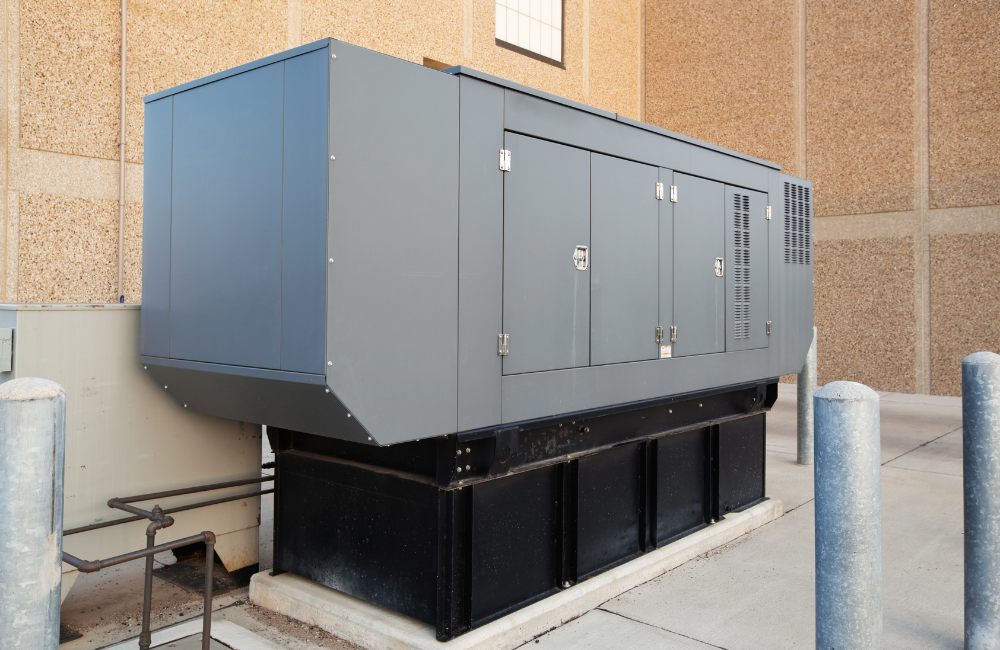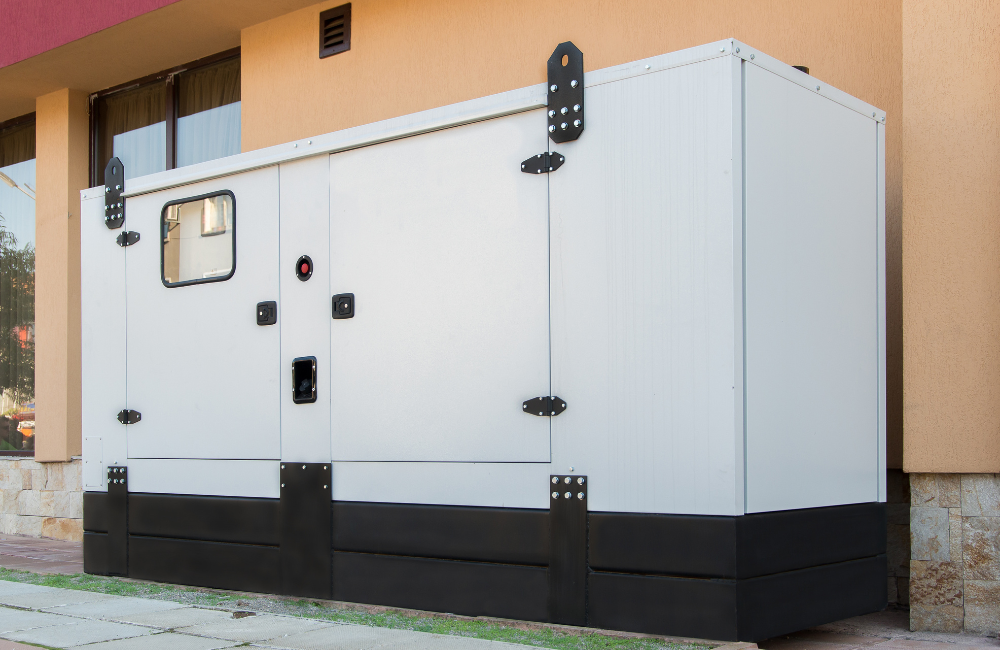
A Guide to Standby Generators: Prepare for Power Outages
It’s always wise to have a backup plan. In Australia, wild weather events such as heatwaves, storms, bushfires and floods are common causes of power outages. Power outages are inconvenient enough when they happen in your home. But when it’s your business that has been affected, there’s the additional blow of lost revenue. The scorching heat of the 2023/2024 summer has seen demand for electricity spike to a once-in-a-decade high, increasing blackouts and forcing power outages across the country. It pays to be prepared.
Standby generators will preserve your power in times of complete blackout. These strong, sturdy electrical systems are designed to provide you with an uninterrupted power source when your main one is compromised. From spoiled goods to lost productivity, long power outages can be costly for those with a business. Standby generators let you carry on with operations and keep the worst of their impact at bay.
Buying a standby generator is a great investment but can feel like a daunting prospect if you’re not yet familiar with procedures like the maintenance of a standby generator. Yet no matter what you have questions about – standby generator life expectancy, cost, operational procedures etc. – Total Generators can help you find the perfect generator for your home, business, or site.
Even as the seasons change, it helps to prepare for power outages all year round. The Total Generators team are here to walk you through your standby generator options so you never get left in the dark again.
The Importance of Standby Generators
There are two main kinds of backup power solutions: standby generators and portable generators. Both will keep the energy flowing to your home or business when you need it, but the two are distinct forms of generator. A portable generator is an immediate fix but a temporary one. A standby generator is a permanent addition to your house or workplace. While a portable generator usually needs to be started manually, a standby generator is ready to spring into action as soon as your power goes out.
There are so many benefits to standby generators both in your home and for your business, including some you may not necessarily expect:
They eliminate unplanned downtime
Losing power often means having to shut your whole business down, resulting in a loss of productivity and profits. With a standby generator, you stay fully operational no matter what nature brings.
They keep important systems operational
A power outage doesn’t just mean the lights go off. There are so many other vital machines and processes that can unfortunately be shut down by a sudden power outage. A standby generator can keep life-saving medical equipment running, ensure that food doesn’t spoil and allow you to complete projects within the assigned timeframe.
They keep lines of communication open
If your business involves dealing with the public, people will likely keep trying to get in touch with you during a large-scale interruption. Standby generators allow you to keep the support lines open so your customers aren’t left in the metaphorical dark.
They protect customer data
A power outage can make it harder for customers to access their data and increase security risks, as opportunistic hackers may exploit the small window of vulnerability they provide. A standby generator guarantees a continuous supply of power to computers, databases, phones etc., for the peace of mind of both you and your customers.
They’re quiet
While portable generators have reputations for being noisy, standby generators are notably quiet due to insulation and weather-proof casing.
Standby Generator Maintenance

Standby generator maintenance is important for increasing your standby generator’s life expectancy. There are some steps you can take on a weekly, monthly, biannual and yearly basis to protect the lifespan of your standby generator. If you’ve had a standby generator installed in your home, a few simple steps will allow you to keep protecting your home into the future.
Weekly Maintenance
It’s worth testing your generator for at least 30 minutes a week to make sure it’s ready to go in case of an emergency. While you can perform the weekly test with no load, having a realistic load in place provides you with a more accurate assessment. While you run your generator, check the indicator lights and alarms are functioning properly and watch out for any leaks, vibrations or unexpected noises.
Monthly Maintenance
Monthly standby generator maintenance involves performing a more involved inspection, checking the coolant, oil and battery electrolyte levels and cleaning or replacing the air filter.
Biannual Maintenance
At least twice a year, you should change the oil and oil filter, inspect the fuel system components, including the filters and injectors, check and replace the spark plugs, and test the starting batteries.
Annual Maintenance
At least once a year, it’s important to conduct a thorough examination of the entire generator system. This includes changing the sump engine oil, flushing and refilling the radiator, changing the fuel and air filters, checking the electrical connections, cleaning the air grilles and calibrating the voltage and frequency settings.
Practising this kind of maintenance regularly will work wonders for your standby generator’s life expectancy.
Standby Generator Overall Cost
A generator is a worthy investment for your business, but the cost of buying one depends on the kVA size and the retailer in question.
In Australia, you can expect a 10 to 25kVA generator to cost between $8,500 and $12,000. A 30 to 80kVA generator will set you back between $15,000-$20,000. A 100kVA plus generator will cost about $23,000, while the largest generators can cost almost $190,000.
However, these figures are variable, and the right generator retailer will balance quality and affordability.
How Long Do Standby Generators Last?
Standby generators can last for decades. Depending on the quality of the generator and how well it has been maintained, you’re looking at an average lifespan of 25-40 years (or 10,000–30,000 running hours). However, during that span of time, there may be new developments in generator technology, or your standby generator may no longer be supported by the manufacturer. So there may be other factors besides your standby generator’s actual life expectancy that motivate you to upgrade.
Buy Standby Generators at Total Generators

Total Generators sells standby generators from industry-leading brands such as Cummins, Powerlink and Denyo. With a selection of industrial-sized generators from 10kVA and above, we provide generator models to suit all budgets and power supply needs.
Total Generators can not only provide generator sales and hire but assist with standby generator maintenance too. Our electrical technicians in Brisbane, Moranbah, Cloncurry and the Northern Territory provide load bank testing and equipment for your generator.
Total Generators has more than 25 years of experience providing power to Australian industries, and we’re used to delivering custom solutions to our clients. For a number of utility providers, remote mine camps, construction companies and other professionals with high power needs, we’re the number one choice for generators. We exceed expectations and outperform competitors even in demanding conditions such as remote and rural locations.
If you’re looking for a standby generator with a level of quality and reliability you can trust, contact the Total Generators team for a quote.


